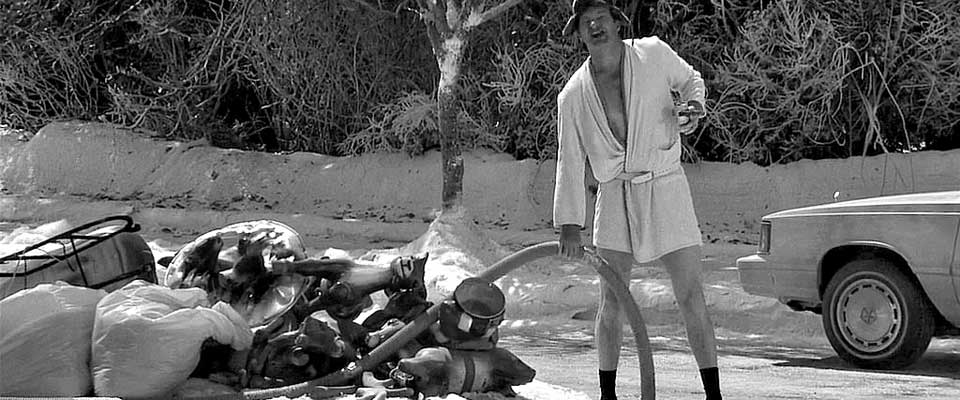
Can I dump my RV’s holding tanks at home?
Is it legal to dump your RV’s wastewater into your residential sewer system at home? Probably not. Different communities have specific local ordinances, and as a responsible RV owner, you should look into them before dumping your tanks.
Most cities and towns object to RVers emptying their tanks at home for three reasons:
1. They’re not sure what you putting into their system. Sure, what’s in your tanks is probably the same stuff that goes down the toilets and drains in your home, but there’s no exact way for the municipality to be sure.
Plus, they suspect that you’re using some pretty heavy-duty chemicals or other tank additives in your RV – something they’d rather avoid in their citywide waste processing system. At home, you’re not likely to dump any harsh chemicals, enzymes, or unknown biological agents into your toilet.
Yes, you’re just one RVer, but imagine if every RV in a community started dumping their tanks into the city waste collection system.
2. They’re afraid you’ll spill it. You know that you’re careful. We know that you’re careful. Your local municipality doesn’t know. And they don’t want you spilling any biological waste on the ground and either rinsing it into the street or — worse – ignoring it and hoping the rain next week takes care of it. We know, it sounds kind of paranoid, but that’s what your local government is afraid of.
You probably notice at RV dump stations that there’s a built-up platform with a lip around it to catch any spillover into a drain. There’s also a pressured water hose at the ready to quickly rinse anything down into that drain. You probably don’t have a setup like this at home.
3. You’re not going to be billed for the waste you put into the system. Most municipalities charge you for the water you use and then a portion of that water in waste processing. It’s how they pay for their processing facilities, maintenance and upkeep, improvements, and employee-related costs. By introducing waste from your RV, you’re adding more to the system than they are anticipating, driving up costs.
So what’s the solution if you can’t dump your holding tanks when you leave a campground or RV park? Well, maybe plan for a stop along the way at a truck stop that has dumping facilities. Or if there’s a nearby RV park that allows drive-up dumping, take advantage of that. Some municipalities even have RV dump stations at their waste processing facilities.
Regardless, check with your local city or town before snaking that waste hose out to the sewer clean-out or – worse – the storm sewer. Getting caught could result in a large fine or worse.
Jim & Debbie Tome, Owners
Hi, we're Jim and Debbie Tome and we're the owners of Kleen Tank LLC, the nationally-recognized and largest professional network of RV tank cleaning service provider.
We've been RVers like you since 2004 and have traveled all over the U.S. in our Airstream travel trailer. We started the business about twelve years ago and have cleaned tens of thousands holding tanks in thousands of RVs. From tiny weekend travel trailers to monstrous fifth wheels to luxurious motorhomes, we've seen just about every situation there is with RV holding tanks and waste systems.
We hope you enjoy our question-and-answer articles; we try to post at least a couple per week and we've got a great library of them to cover just about every problem.
And if you like these short question-and-answer posts, be sure to check out our main Kleen Tank website which contains years of longer-format articles that go more in-depth on many topics. Enjoy!
Join Our eList
We publish a couple of new helpful and interesting question-and-answer-style articles every week (sometimes more often if we get a lot of owner-submissions). Subscribe to our e-list and you'll get an email alert when new questions and answers are published. You'll keep up-to-date, stay more educated, and be better able to take care of your RV!
Don't worry, we NEVER sell, loan, or share your personal information with anyone. Sign-up now!
Keep in mind that we may receive commissions when you click our links and make purchases. However, this does not impact our reviews and comparisons. We try our best to keep things fair and balanced, in order to help you make the best choice for yourself and your RV.
Have a quick inquiry? We'll get right back to you!
Don't worry, we NEVER sell, loan, or share your personal information with anyone.
![]() P.O. Box 313, Sycamore, IL 60178
P.O. Box 313, Sycamore, IL 60178
![]() 844-KLEENME (844-553-3663)
844-KLEENME (844-553-3663)
![]() info@AskKleenTank.com
info@AskKleenTank.com
![]() Facebook.com/KleenTank
Facebook.com/KleenTank
About our service
Fixes and corrects your RV's tank sensors almost every time.
Features innovative, hydrojetting technology.
Is a 100% mobile service. We come to you at your site.
Is environmentally safe and makes no mess at your site.
Is chemical-free and all-natural.

